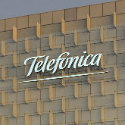Telefónica's Brazil biz scores fiber deal with CDPQ
Independent open-access wholesale operator, dubbed FiBrasil, set up in collaboration with Canada-based investment group.

Telefónica's relatively new fiber co-investment and wholesale model, unveiled by the Spanish giant in late 2019 as part of a major organizational and strategic revamp, has rolled up in Brazil with all guns blazing.
Vivo, Telefónica's mobile and fixed-line operation in Brazil, has entered into an agreement with Canada's Caisse de dépôt et placement du Québec (CDPQ), a global investment group, for the construction, development and operation of a "neutral and independent optical fiber wholesale network in Brazil."
The new company, dubbed FiBrasil – and assuming it gets all the necessary regulatory approvals, expected to arrive next quarter – will adopt a "co-governance model" involving Telefónica Group and CDPQ. Each will hold a 50% stake.
Telefónica's 50% participation in FiBrasil is via Telefônica Brasil (a.k.a "Vivo") and Telefónica Infra, the infrastructure arm of Telefónica Group. Each will hold a 25% stake.
CDPQ? QED
Christian Gebara, Telefônica Brasil's CEO, flagged a few months ago that Vivo was on the lookout for a "series of investors" in a mooted infrastructure company involving the operator and Telefónica Infra. CDPQ seems to have to have ticked all the boxes, however, and removed the need to look further afield.
The official statement on the collaboration talked in glowing terms about CDPQ's "infrastructure investment expertise" and how it will complement Telefônica's know-how in rolling out fiber to households and businesses.
Moreover, FiBrasil is designed to limit Telefônica's financial exposure to fiber rollout. CDPQ is plowing up to BRL1.8 billion ($321 million) in the joint venture, comprising both primary and secondary payments. The investment group's projected capital contributions, plus new (albeit unspecified) debt raised by FiBrasil, are calculated to provide a "fully funded business plan to accomplish the company's deployment targets."
The FiBrasil road to more homes passed
Starting with a portfolio of 1.6 million homes passed, contributed by Telefônica Brasil, FiBrasil aims to expand its network to reach around 5.5 million homes passed within four years.
Initial rollout is slated for "selected mid-sized cities" across Brazil outside the state of Sao Paulo, and to provide FTTH wholesale access to all telecommunications service providers.
Want to know more about 5G? Check out our dedicated 5G content channel here on Light Reading.
"Vivo will be FiBrasil's anchor tenant," said CEO Gebara, "allowing Vivo to improve time to market, while at the same time enabling a more efficient use of funds." He added that fiber will be a "key driver" for Vivo's future top-line growth, with FiBrasil providing the platform for expanding coverage to greenfield cities.
Looking at the bigger picture, including FTTH rollouts outside FiBrasil's remit, Gebara is aiming to pass at least 24 million homes by the end of 2024.
Other markets where Telefónica Group is making progress with similar third-party fiber co-investment models include Chile, Germany and Peru.
— Ken Wieland, contributing editor, special to Light Reading
Read more about:
EuropeAbout the Author(s)
You May Also Like












